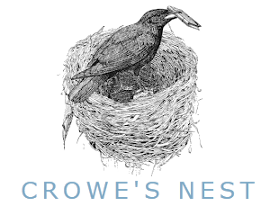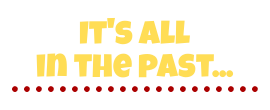Well, okay. Probably us. We know the power words have. I watched a youtube video months ago that showed the power words have in such a different way than I've ever thought, and it's fascinated me ever since. This video really spoke to the writer me.
It's eight minutes long. I know not everyone wants to watch a clip that long, so I'll paraphrase.
Basically, it says that the
words you learn could have an impact on the colors you
see. Fascinating already, right? They talk about tests they do on babies and toddlers to see how the brain processes color before language and after language, which is in itself interesting, but the part that really got me was about the Himba tribe in Northern Namibia.
The English language has eleven color categories. Reds, blues, greens, browns, yellows, etc. In the Himba tribe, they have FOUR.
Zoozu= dark colors, including red, some blues, some greens, and purple
Vapa= white and some yellows
Borou= some greens and blues
Dumbu= different greens, reds, and brown
Why is this weird? They did a test, showing participants a ring of squares where all but one of the colors were the same. When the colors were all green, with one very slightly different, English-speakers had a hard time figuring out which green was different. With the Namibia, the other green had a different NAME, so they picked it out instantly. When the ring of colors were all green with one blue, English-speakers picked it out the second it was put on the screen. Easy peasy, right? The two colors had the same name among the Himba, though, so they couldn't tell the difference.
So the words we use to categorize things really changes the way we SEE things. Isn't that fascinating? (If you want to just watch the Himba tribe part, skip to the 3 minute mark. I promise it's worth it.)
When I first saw this video, I thought,
Wow! It would be so cool if someone wrote a fantasy using some of these elements! But then I realized that its implications are far greater. This talks about how we categorize
colors. That by having categories to put them in, we quickly order what we see.
Characters and setting are the same way. When you read about someone or some place, your mind immediately categorizes them (not always in the right category, of course). The brain orders what it sees. And that, my friends, can be used to our advantage or our disadvantage. A reader WILL do it, whether we want them to or not. If we're aware of it when we first introduce a scene, it can be to our advantage. A few carefully chosen words can set a scene by placing it in a well-known category, which is especially helpful when it's a part you don't want bogged down by description. If we're aware of it when we're introducing a character, helping the reader put them into a category with the words we choose can get them thinking exactly what we want them to think about that character (whether it's a correct assumption on their part, or whether we want them to learn it's incorrect later).
Pretty powerful stuff, words. Kinda makes you feel like a superhero, doesn't it?





































